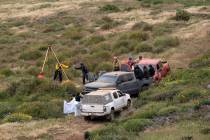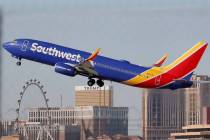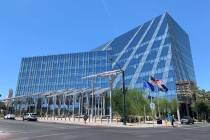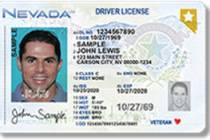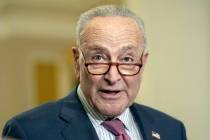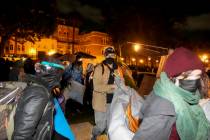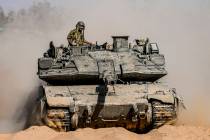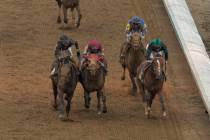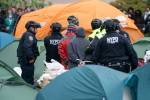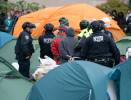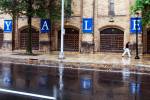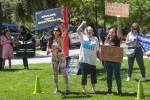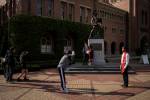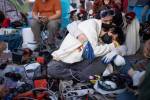Late-night classes at CSN grow
If enrollment keeps growing at the College of Southern Nevada as it has been for more than two decades, the school will top 50,000 students in just a few more years. It will have more students than the University of Nevada, Las Vegas and the University of Nevada, Reno combined.
And the college is running out of room, with no money to build more classrooms and very little to hire new teachers and staff.
So, last semester, the college's leaders tried something new: They added classes at midnight.
The idea was so wildly successful -- some of the classes filled up in days -- that they have more than doubled the offering for this fall. More than 500 students had signed up as of last week. School starts today.
"When I first saw the number was 500, I went, 'Wow. That's a lot of people.' I was surprised," said Darren Divine, vice president for academic affairs.
He said overall enrollment was up as of last week by about 10 percent over the same time last year. It's hard to say what it will be once registration is over, but he said enrollment will certainly be up.
Last fall, more than 43,000 were enrolled. That's more than double what enrollment was 15 years ago and a third higher than a decade ago.
The classes offered late at night are generally core curriculum, such as English, math, biology and philosophy. They are offered only on the college's West Charleston Boulevard campus.
David Goldwater, an astronomy professor, said his introductory class was already full.
"It filled up pretty rapidly," he said.
His class will run from 10:35 p.m. to 11:55 p.m. on Mondays and Wednesdays. Other classes run from 12:05 a.m. to 1:25 a.m. Last semester, there was a slight glitch when classes started right at midnight. Some students weren't sure from the schedule listing which day they were on.
Like all of the professors who are teaching the late-night classes, Goldwater volunteered to do it. The college is not forcing professors to teach so late at night.
"I just felt astronomy was a natural class for this," said Goldwater, who has taught at CSN since 1997, full time since 1999.
Typically, his astronomy classes are in the afternoon or early evening. That's fine in the winter, when it gets dark early. But it's not so great in September and October. Goldwater said he likes to include some real world observation in his courses.
Divine said the college has economized a great deal in the last several years by keeping classes full or nearly full. In 2007, late-night classes were 84 percent full. That grew to 91 percent in 2008 and 95 percent in 2009, a figure he called "jaw dropping."
Divine still is calling the late-night classes an experiment, no matter how packed they are. That's because having several hundred students, not to mention the staff, on campus for two or three hours so late at night brings up other issues.
"I am concerned when we've got 500 students on campus," Divine said. "That's a lot of people on campus. I need more than just a classroom for them."
Like the library, for one.
And, perhaps most importantly, coffee.
The whole campus is shut down that late at night. There are convenience stores across Charleston, but nothing else.
Divine said the library will be able to stay open until 10:30 p.m. this semester, right when the first late-night class starts. He said college officials hope to hire someone for next semester to keep it open later.
He is negotiating an agreement with the college's food vendor to keep some kind of coffee cart open late at night for at least the first week of classes.
If it works out and coffee remains available, who knows how popular the classes could become?
Contact reporter Richard Lake at rlake@reviewjournal.com or 702-383-0307.








